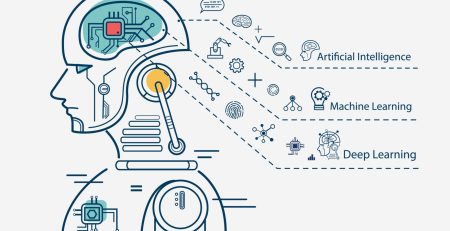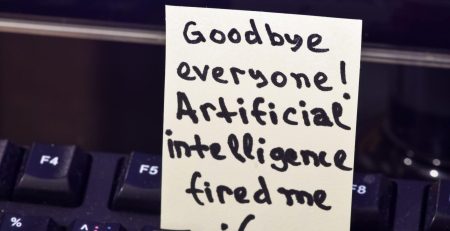Unlocking Possibilities: Artificial Intelligence Reshaping the Gaming Industry
The Intersection of Artificial Intelligence and Gaming
Artificial Intelligence (AI) technology is reshaping many industries, and the gaming world is no exception. The marriage of artificial intelligence in gaming is creating a revolution, enhancing player experience, and transforming game development processes.
A Brief History of AI in Gaming
The journey of AI in gaming began as early as the 1950s, with simple algorithms powering the decision-making of game characters. However, it was not until the 1990s that AI began to play a substantial role in creating sophisticated gaming environments.
The underlying principle of AI in gaming has historically been to create non-player characters (NPCs) that can engage the player in a challenging, yet winnable, game. Early AI-powered NPCs followed predefined paths and rules. However, as AI technology evolved, so did the complexity and realism of these NPCs.
The table below provides a snapshot of AI’s evolution in gaming:
| Year | Milestone |
|---|---|
| 1950s | Introduction of simple algorithms in games |
| 1990s | AI begins to play a substantial role in games |
| 2000s | Introduction of Machine Learning and Deep Learning techniques in gaming |
| 2010s | Rise of AI-generated procedural content and realistic NPCs |
The Growing Impact of AI in the Gaming Industry
The impact of AI on the gaming industry is monumental and ever-growing. Today, AI is not just about creating intelligent adversaries. It’s about crafting a more immersive, realistic, and personalized gaming experience. AI helps generate sophisticated virtual worlds, develop realistic characters, and adapt the game’s difficulty to the player’s skill level.
Moreover, the role of AI extends beyond the game design. It aids in efficient game development, including procedural content generation and automated bug detection. AI is also instrumental in analyzing player behavior to enhance player retention and engagement.
From enhancing the gaming experience to improving the efficiency of game development, the influence of AI in gaming is undeniable. As we delve deeper into the world of gaming, we will explore how AI is enhancing gaming experiences, its role in game development, and future trends.
For a broader understanding of AI and its applications, check out these articles on artificial intelligence definition, artificial intelligence machine learning, and artificial intelligence examples. To comprehend AI’s impact on other sectors, browse through articles on artificial intelligence in business and artificial intelligence in finance.
How AI Enhances Gaming Experiences
The integration of artificial intelligence in gaming has brought about significant enhancements in the gaming experience. The application of AI in this domain has improved game design, created more realistic non-player characters (NPCs), and facilitated dynamic difficulty adjustment.
Improved Game Design
Artificial intelligence has revolutionized the game design process. Machine learning algorithms, a subset of AI, are used to analyze player behaviors, preferences and responses to different gaming elements. This information is then leveraged to create games that are more engaging and tailored to individual player preferences.
AI algorithms can determine optimal game layouts, generate compelling storylines, and even predict player actions to create challenging and immersive gaming experiences. The result is a more personalized and engaging game that is continually adapted and updated based on player feedback.
Furthermore, AI’s ability to process vast amounts of data in real-time allows for the development of adaptive games that evolve according to player interactions. This level of personalization is unprecedented in the gaming world and is set to redefine the future of game design.
Realistic Non-Player Characters (NPCs)
AI also plays a crucial role in creating realistic non-player characters (NPCs). NPCs are controlled by the game’s AI, which dictates their behavior, reactions, and dialogues. Through machine learning and natural language processing (NLP), these characters can now respond more realistically to player actions and environmental changes.
With AI, NPCs can learn from previous interactions, mimic human-like behavior, and respond in ways that are consistent with their character design. This advance in AI technology has enabled the creation of NPCs that are more believable and immersive, enhancing the overall gaming experience.
Dynamic Difficulty Adjustment
Dynamic Difficulty Adjustment (DDA) is another significant contribution of AI to the gaming industry. DDA is a technique used to automatically adjust the difficulty level of a game in real-time, based on the player’s skill and performance.
AI algorithms monitor player behavior and gameplay data to determine the optimal challenge level for each player. This personalized difficulty setting ensures that the game remains challenging enough to keep players engaged, but not so difficult that it becomes frustrating.
By adapting to each player’s skill level, AI ensures a balanced and enjoyable gaming experience for all, from novices to experienced gamers.
The integration of artificial intelligence in gaming is continually evolving, unlocking new possibilities for enhanced gaming experiences. As AI technology continues to advance, we can expect even more sophisticated and immersive games in the future. For more information on the broader applications of AI, check out our articles on artificial intelligence definition, artificial intelligence machine learning, and artificial intelligence examples.
The Role of AI in Game Development
Artificial intelligence plays a pivotal role in modern game development, from streamlining the creation of game assets to generating dynamic content and automating bug detection. Let’s explore how AI is revolutionizing these areas.
Efficient Asset Creation
In the world of game development, creating intricate and detailed game assets can be a time-consuming and labor-intensive process. However, artificial intelligence is transforming this aspect of game development by automating and accelerating the creation of high-quality assets.
AI technologies, such as machine learning algorithms, can generate realistic textures, landscapes, and character models, significantly reducing the amount of time and effort required by designers. They can learn from existing game assets to create new ones that are consistent with the game’s aesthetic and design principles.
Aside from efficiency, AI-powered asset creation also provides scalability. As an example, a game that requires thousands of unique character models can benefit massively from an AI system capable of creating diverse and detailed models on its own. To learn more about how AI and machine learning work together, check out my article on artificial intelligence machine learning.
Procedural Content Generation
Procedural Content Generation (PCG) is another area where artificial intelligence is making a significant impact. PCG involves using algorithms to automatically generate game content, such as levels, quests, items, and even entire game worlds. This technology allows for vast, dynamic environments that can adapt to player actions and choices, offering a unique and immersive gaming experience each time.
AI systems can analyze player behavior and preferences to tailor the game environment and challenges to individual players, enhancing the level of personalization and engagement in the game.
Automated Bug Detection and Fixing
Artificial intelligence is also proving to be a valuable tool in detecting and fixing bugs in games. Using machine learning and data analysis, AI systems can identify patterns and anomalies that may indicate a bug. These systems can scan through massive amounts of game data, pinpoint potential issues, and even suggest possible fixes.
Not only does this help speed up the bug-fixing process, but it also allows game developers to focus more on the creative aspects of game development rather than spending their time hunting down and fixing bugs.
In addition to these applications, AI holds tremendous potential for the future of game development. From creating more engaging and realistic Non-Player Characters (NPCs) to driving innovation in virtual reality and augmented reality games, the possibilities are endless. For more examples of how AI is being used, check out my article on artificial intelligence examples.
By integrating artificial intelligence in gaming, developers can create more immersive, dynamic, and personalized gaming experiences. As AI technology continues to evolve and improve, its role in game development is set to become even more pivotal.
Future Trends: AI Transforming the Gaming Landscape
As we look toward the future, it’s clear that artificial intelligence in gaming is more than a passing trend. It’s set to revolutionize the gaming landscape, from how we experience games to how they’re developed and marketed. I see three key areas of innovation that deserve our attention: AI in virtual reality and augmented reality games, the emergence of cloud gaming, and predictive analytics in player retention.
AI in Virtual Reality and Augmented Reality Games
Virtual reality (VR) and augmented reality (AR) are two exciting frontiers in the gaming industry. AI is poised to take these immersive experiences to new heights. By integrating artificial intelligence machine learning techniques, VR and AR games can become more responsive and realistic. AI can be used to create dynamic environments that react to player actions, or generate intelligent non-player characters that learn and adapt in real-time.
AI also opens the door for sophisticated speech recognition and natural language processing in VR and AR games. This could result in more interactive gaming experiences, with players able to communicate with game characters or control aspects of the game using their voice. For more on how AI and machine learning intersect, read our article on artificial intelligence machine learning.
The Emergence of Cloud Gaming
Cloud gaming represents a significant shift in how games are delivered and played. At its core, cloud gaming leverages the power of remote servers to stream games directly to a player’s device. This eliminates the need for expensive hardware or physical game copies.
AI plays a crucial role in optimizing this streaming experience. It can help balance server loads, predict network issues, and adjust game settings in real-time for optimal performance. As cloud gaming grows in popularity, the role of artificial intelligence in gaming infrastructure will become increasingly important.
Predictive Analytics in Player Retention
Player retention is a key concern for game developers and publishers. AI and machine learning can provide valuable insight into player behavior, helping to predict and improve player retention rates.
Using AI, developers can analyze vast amounts of player data to identify patterns and trends. This might involve tracking player actions, session times, in-game purchases, and more. With these insights, developers can make informed decisions on game design, pricing, marketing, and other factors that influence player engagement and retention.
For example, an AI algorithm might reveal that players are more likely to make in-game purchases after achieving certain milestones. Based on this information, a developer could tweak the game to provide more rewarding experiences at these crucial points, encouraging continued engagement.
| Application of AI | Impact on Player Retention |
|---|---|
| Analyzing player behavior | Identifies trends and patterns, informs game design |
| Predicting player actions | Allows for proactive measures to improve engagement |
| Personalizing player experiences | Makes each player feel valued, increasing loyalty |
The potential of artificial intelligence in gaming is vast and continues to grow. As we continue to unlock AI’s possibilities, we can expect to see even more innovative and immersive gaming experiences on the horizon. For more examples of how AI is being used across various industries, visit our articles on artificial intelligence examples, artificial intelligence in business, and artificial intelligence in finance.
The Challenges and Opportunities of AI in Gaming
As we delve into the realm of artificial intelligence in gaming, it’s essential to consider both the challenges and opportunities that this technology presents. From ethical considerations to future developments, the intersection of gaming and AI is ripe for exploration.
Ethical Considerations and Fair Play
Incorporating AI into gaming comes with its own set of ethical considerations. One of the major concerns is the concept of fair play. With AI’s ability to learn and adapt, there’s a risk of creating non-player characters (NPCs) that are too powerful or knowledgeable, making games unfairly difficult for players.
Moreover, the use of AI and machine learning algorithms for dynamic difficulty adjustment can lead to concerns about transparency. Players may feel manipulated if the game’s difficulty level changes without their knowledge or consent. Ensuring transparency and maintaining the trust of players is crucial in leveraging the potential of AI in gaming.
Finally, data privacy is another significant ethical issue. AI algorithms often require large amounts of data to function effectively. In a gaming context, this could involve collecting data on players’ behaviors and preferences. It’s vital to handle this data responsibly, ensuring it’s securely stored and used appropriately.
Future Opportunities for AI in Gaming Development and Enhancement
Despite these challenges, the use of artificial intelligence in gaming opens up a plethora of opportunities for both game development and enhancement.
In terms of game development, AI can enable more efficient asset creation and procedural content generation. This can lead to richer, more immersive gaming environments. Furthermore, automated bug detection and fixing can streamline the development process, reducing the time and resources required to create high-quality games.
AI also presents exciting possibilities for enhancing player experiences. For instance, improved NPC behavior, powered by AI, can make games more engaging and realistic. AI can also personalize gaming experiences, adapting gameplay based on individual players’ skills and preferences.
Looking to the future, we can anticipate even more innovative applications of AI in gaming. From AI-powered virtual reality (VR) and augmented reality (AR) games to the use of predictive analytics for player retention, the possibilities are vast and varied.
Leveraging AI in gaming, however, is not just about enhancing player experiences and streamlining game development. It’s also about exploring new models of gameplay and creating innovative gaming concepts. As we continue to push the boundaries of what’s possible with AI, the gaming industry stands to be at the forefront of these exciting developments.
To gain a further understanding of AI and its potential, you may want to explore our articles on artificial intelligence definition, artificial intelligence machine learning, and artificial intelligence examples. Additionally, if you’re interested in how AI is impacting other industries, our articles on artificial intelligence in business and artificial intelligence in finance can provide valuable insights.









Comment (1)
[…] early 2000s witnessed AI becoming an essential part of industries such as finance, healthcare, and gaming. For an in-depth look at AI’s development over the years, check our article on artificial […]